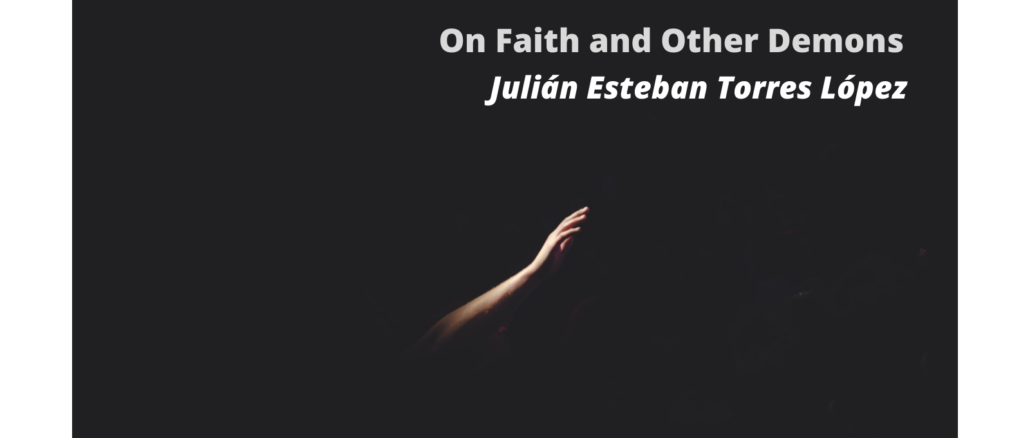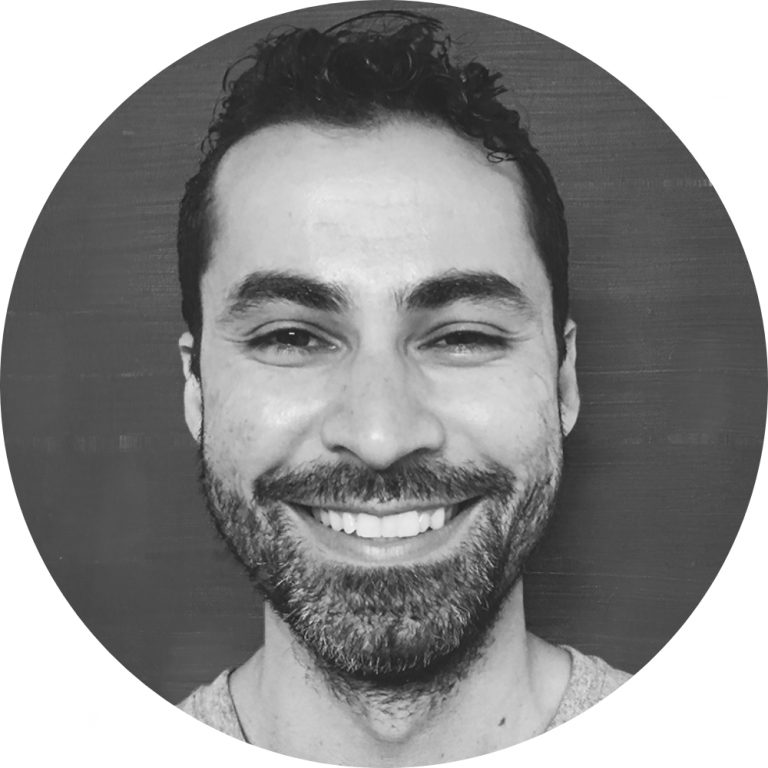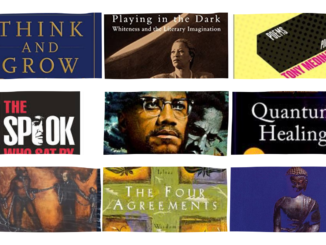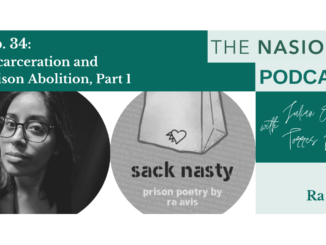
Listen to Julián read the essay on our Instagram.
This may be a controversial statement, but I don’t have faith in humanity, nor do I want to. I want to trust humanity. The former relies on a hope that goes against human history (or, at least, the history I have experienced), while the latter is rooted in evidence from historical behaviors and policies over periods of time that are consistent and predictable.
I want to have trust in you and in others. Give me a reason to trust. Do not ask me to have faith. Do not demand my faith. Do not feel entitled to my faith.
When you ask me to have faith in humanity, you gaslight me. When you ask me to have faith in the systems and their policies, you invalidate and dismiss my lived experience in the world.
If I am attacked a trillion times out of a trillion, and then you ask me to give my attacker the benefit of the doubt that he will not attack me the next time, you are ultimately siding with my attacker. You are an accomplice in the violence perpetrated against me and against all others you tell to “just have faith because things will get better.”
NO!
Give me a reason that is measurable, that is testable, to trust things will get better. Only when you do, will I prudently let my guard down.
When you tell survivors of oppression to have faith that things will get better, and then you do nothing to change culture, to change behaviors, to change policies, to ensure situations improve, you ultimately ask us to be docile and to accept a violent, exploitative, and suppressive status quo.
Give me, and everyone else, multitudes of reasons to trust you and to trust our surroundings and others. But never ask me to simply have faith.
The long arc of history only bends toward justice if we actively work toward bending it.
The arc does not magically become more just by simply waiting, hoping, dreaming, praying, or wanting.
The arc can easily straighten or bend in the opposite direction if we allow it …
if we remain silent …
if we remain inactive …
if we remain complicit.
To ask me to have faith in our systems, in our institutions, is to claim that this is the best of all possible worlds. To ask me to have faith is to surrender my rebellion, and I resist your insistence. To ask me to have faith is to stop advocating for my needs. To ask me to have faith is to accept the police gunshots that land on our backs with a smile.
Enough with your toxic positivity! I do not want to be lobotomized. I have seen what decerebration does, which is worse than if we did nothing.
Please, instead, turn your framework on its head. Do not focus your time on trying to convert us to embrace blindly something we have no reason to adopt. I will not take that leap of faith. Instead of focusing on getting us to accept the lashings that daily come our way, please direct your energy on removing the whip from the hands that violate us and on creating systems and policies that make it so those holding the whip can no longer whip us at will, whip us at all. And, if they do, you must hold them accountable.
I cannot have faith in a system I cannot trust. I cannot have faith in a world that deems me a criminal because of the color of my skin. I cannot have faith in a system that was designed, through its polices, to make it so safety and opportunity is not readily accessible to me and others like me.
To ask me to have faith in this humanity is to ask me to not only remain a victim but to also become my own victimizer. It is the opposite of being both judge and jury. To ask me to have faith in this humanity is to ask me to condemn myself … to place my own head in the Guillotine … and to then proceed to behead myself in front of cheering masses.
Faith in this humanity is decapitation. I do not wish to become a dismembered appendage for Dr. Frankenstein’s monster. I want us all to be modern Prometheus!
Let us reinvent humanity from clay. Let us defy the gods, steal their fire, and give it to our peoples to spark civilization centered in decolonization! This is a human-centered revolutionary call. A call for true liberty, true autonomy. A call to rename ourselves to reclaim ourselves.
But simply faith, you ask? No. No, I shall not accept such nonsense. I care too deeply to remain silent. I will not turn away from reality simply because faith brings you comfort. Your white gaze is exactly our problem. I choose to no longer look away. I will only be comforted by change that centers my grievances and the concerns of others, not solely yours.
I feel for scars that have never felt a wound, but mostly … I fear for wounds that have yet to scar. And so, I keep my eyes open and work toward actively creating that change.
I will never tell you to have faith. I will never ask you to have faith. Instead, I will ask you how we can more effectively build trust together. What do you need? Maybe I can help. Maybe we can help.
(sigh)
Today, I read a tweet by the Texan poet mónica teresa ortiz. She asked, “Can poets strike?” To which she answered, “I think I will.”
Mónica got me to then ask myself (also a poet): What is the best way for a poet to strike? What is the best way for all writers to strike?
We must speak … and speak some more. Speak for the survivors, for the exploited, for the oppressed. Center, elevated, and amplify voices, histories, and experiences. We must expose hypocrisy and hold those wielding it accountable. We must stop cooperating with bullshitters who ask us to have faith in this humanity, in this system, with these institutions. We must stop buying their bullshit.
Whatever we do, however, let us not let silence be our way to strike; unless that silence will disrupt the comfort of the status quo as loudly as a scream.
Julián Esteban Torres López (he/him/his/el) is a bilingual, Colombia-born cultural worker with Afro-Euro-Indigenous roots. For two decades, Julián has studied systems of oppression and has worked toward humanizing those who have been socially, politically, and geographically excluded from the hierarchies of power by centering, elevating, and amplifying their voices, experiences, and histories. He is the founder of the social justice storytelling organization The Nasiona, where he also hosts and produces The Nasiona Podcast. He’s a Pushcart Prize and Best Small Fictions nominee, a Trilogy Award in Short Fiction finalist, and the author of Marx’s Humanism and Its Limits and Reporting On Colombia. His work appears in PANK Magazine, Into the Void Magazine, The Acentos Review, Burningword Literary Journal, among others. Julián holds a bachelor’s in philosophy and in communication and a master’s in justice studies from the University of New Hampshire and was a Ph.D. candidate at the University of British Columbia Okanagan, where he focused on political science and Latin American studies.
Featured image: Photograph by Cherry Laithang on Unsplash.



